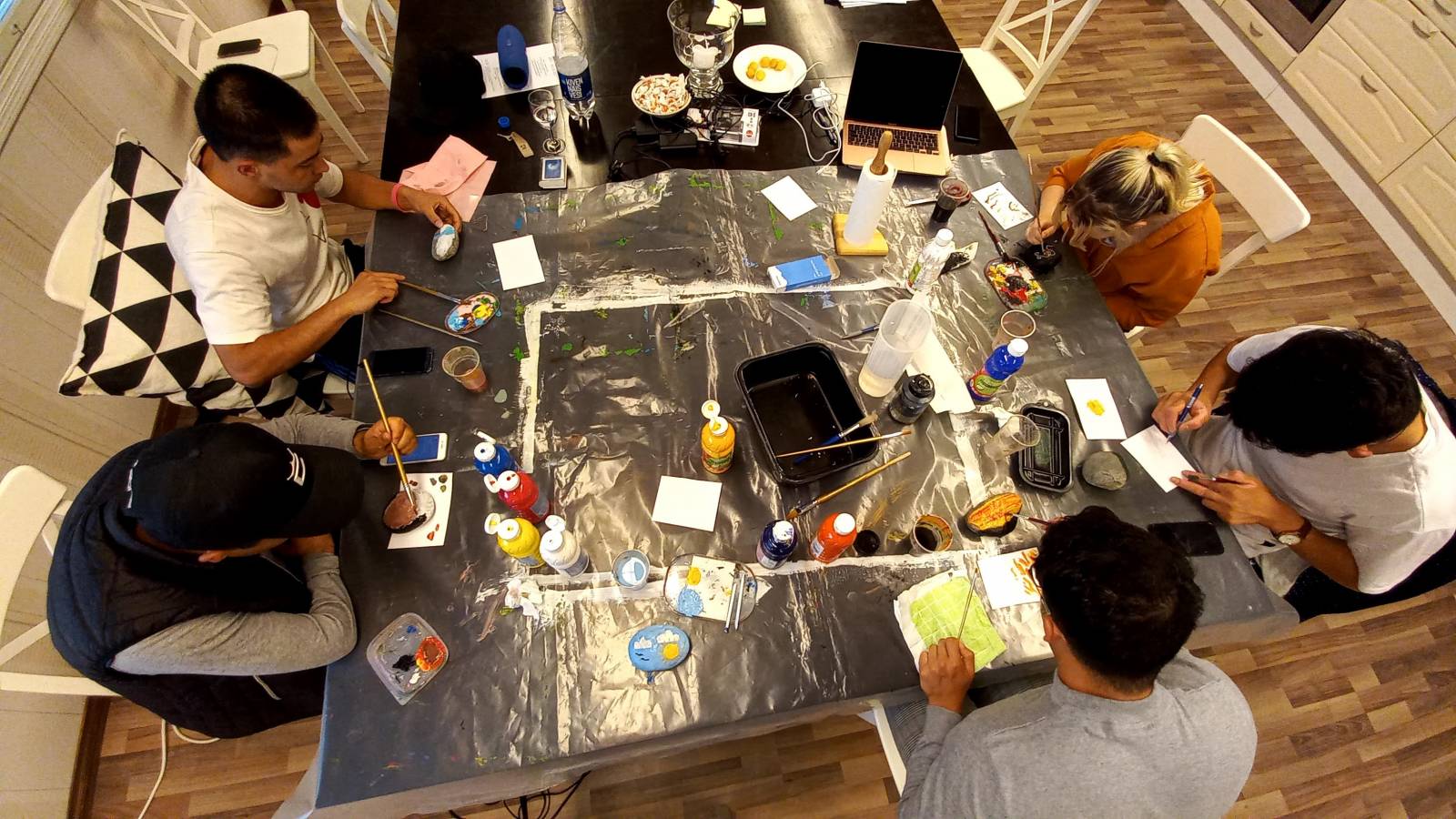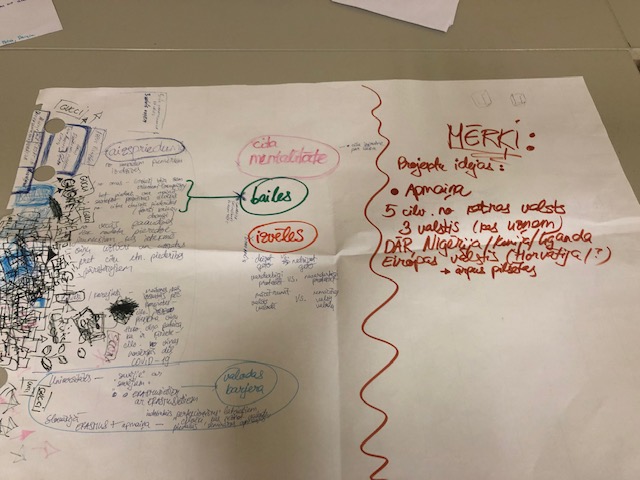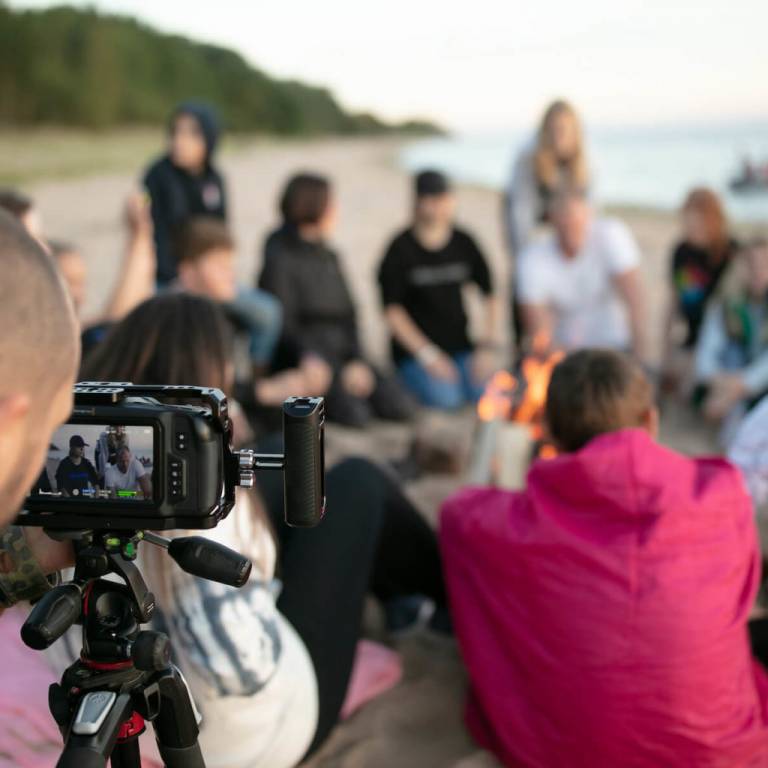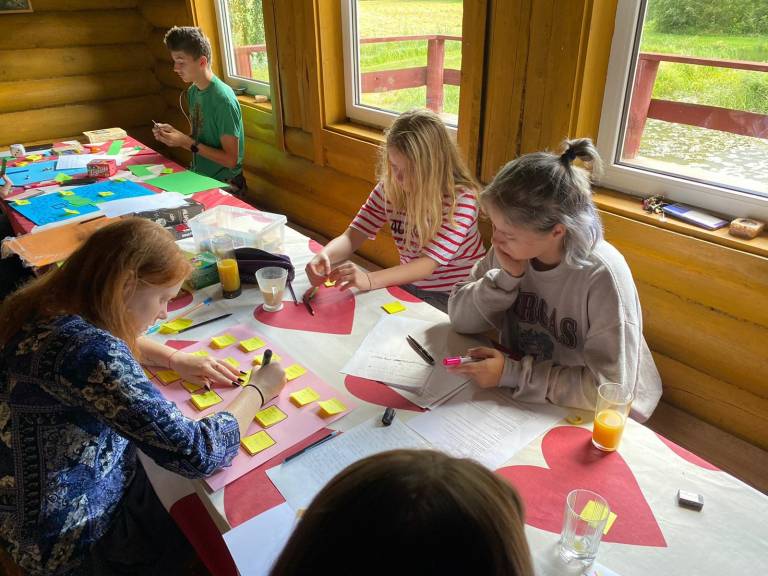Social participation is strongly connected to the well-being of a person. The experience of participating socially increases the feeling of security, faith in the future and trust in their own potential. (THL 2021.) By having the goal of advancing social participation, Making my future is aiming to reduce inequality, marginalization, and discrimination among the young people as a project objective. And that’s what the project Making my future is about; empowering the youth to strengthen their capacity and self-efficacy for a better future (MAMYFU n.d.). Learning with each other, about each other and from each other.
Making my future project’s last intensive week was held as a hybrid version, due to corona restrictions. Our Finnish group participated through Zoom, from Kaarina, Finland. The challenge in advancing social participation in this hybrid event was the obvious one. How do we create the feeling of participation and belonging, when you can’t participate the same way, you could in the same physical space? Secondly, the small size of our group had a big impact on our intensive week, as there was only six of us compared to the international group in Estonia. Small groups tend to work very differently comparing to big ones, for example in communication and structure (Linabary n.d.).
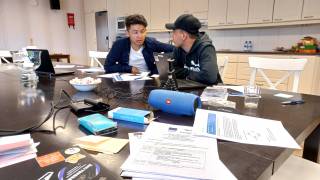
However, in the last one and a half years of corona restrictions these kinds of problems have become very familiar to us. So, how did we incorporate the idea of advancing social participation to our hybrid intensive week?
We had a lot of different approaches regarding advancing social participation. From concrete ways to a bit more abstract ones’. The first concrete way of advancing participation was thought of long before we drove our minibus to Lyhdyn tila in Kaarina, when we chose where to stay. This decision included a lot of questions, from our food policy to the common spaces in use. We chose to make our breakfasts and some of the meals ourselves, in the common space, where we also hang out most of the time. The decision had a really big impact on our intensive week, as we really got to know each other, and our participants gained the trust to voice their thoughts. Also, the possibility to do together, gave us the chance to enjoy the common good; the game we created, breakfasts, barbequing together, warming up the sauna, sharing our thoughts, and much more! We got to learn with each other, about each other and from each other.
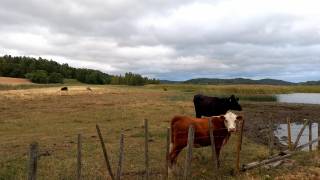
After the group sessions of the mornings, we usually drove to the city of Turku. This is where the trust was weighed, and we got to see our participants use their voice to wish for the things they wanted to do. By us working as a group and co-learning, we got to enhance our communication skills, cultural awareness and thinking skills. For example, we went to the castle of Turku, took a ferry to Ruissalo, went bowling and ate some burgers! 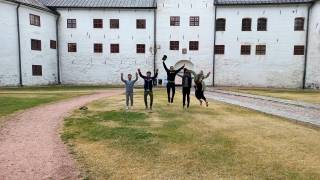
Thinking about advancing participation on a more abstract level, what comes to mind is our Making my future workshops we had. The last intensive week was all about educational games and the topic of our environment. “My future, my planet.” Here we really saw the advantages and disadvantages of our small group. Small group is great for sharing and bouncing ideas, where as in bigger ones the decision-making processes can take a lot of time, and the energy-level shifts are very noticeable (Linabary n.d.). Our way of trying to include and bring everyone in to participate to the group actions, had a lot to do with the mind-body-connection. We for example played darts, ran around our huge conference table, and relaxed on the floor.
In social pedagogy participation is a concept that describes the relationship between an individual and community or society. In order to create the feeling of belonging on a societal level, one must experience it in smaller communities and groups. In the feedback session of the intensive, some participants described the meaningfulness of being able to be involved in a group with trust and feeling that you are welcome and cared about.
By paying attention and working with the situation in hand, we got to watch our participants enhance their entrepreneurial and positive orientation towards their future and their planet. The workshops showed our participants thought processes in creative ways, drawings, and writings and finally very many game ideas. Their creations talked behalf everything that could have been said.
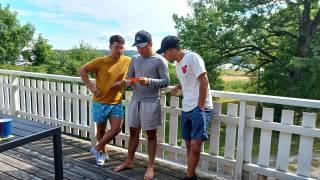
All in all, advancing social participation starts from the very small things, which let your participants know that they can use their voice and be listened to. On the last Making my future intensive week we got to join with young adults from Estonia, Latvia and Finland to reflect and proactively think about the impact we have on our living environments and make our voice heard.
Jenna Ikäheimo
Eeva-Mari Miettinen
References:
Linabary, J. n.d. Small group communication. Introducing small group communication. Kansas State: Emporia State University in Emporia.
MAMYFU. n.d. About. Tampere University of Applied Sciences. Read 22.8.2021. https://projects.tuni.fi/mamyfu/about/
Sosiaali- ja terveysministeriö. n.d. Osallisuuden edistäminen. Read 22.8.2021. https://stm.fi/osallisuuden-edistaminen
THL. 2021. Osallisuuden osa-alueet ja osallisuuden edistämisen periaatteet. Read 22.8.2021. https://thl.fi/fi/web/hyvinvoinnin-ja-terveyden-edistamisen-johtaminen/osallisuuden-edistaminen/heikoimmassa-asemassa-olevien-osallisuus/osallisuuden-osa-alueet-ja-osallisuuden-edistamisen-periaatteet


